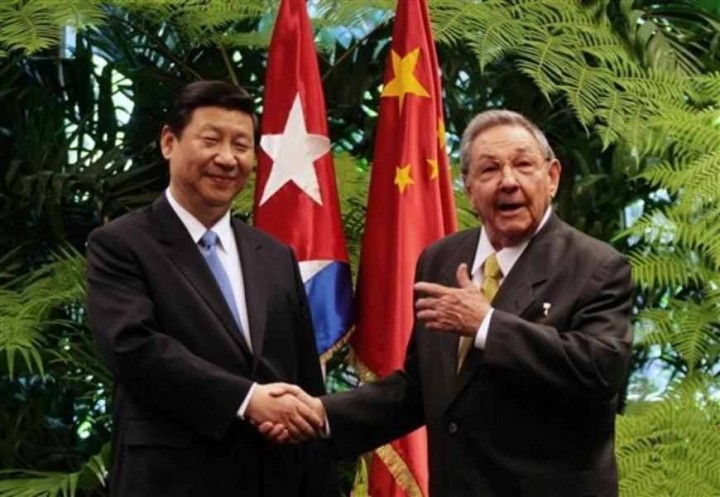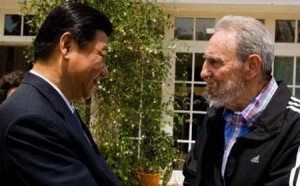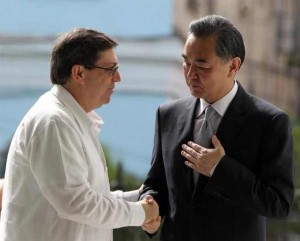
Chinese president to visit Cuba in mid-July
Chinese President Xi Jinping will attend the BRICS summit in Brazil this month and visit Cuba and two other Latin American countries, a Chinese Foreign Ministry spokesman said Monday in Beijing. The announcement was issued simultaneously in Havana.
Xi will attend the sixth BRICS leaders’ meeting on July 15 and 16, in the city of Fortaleza, at the invitation of Brazilian President Dilma Rousseff, according to spokesman Qin Gang. BRICS is the acronym for five major emerging economies: Brazil, Russia, India, China and South Africa.
Qin said that Xi will pay state visits to Cuba, Venezuela, Brazil, and Argentina from July 17 to 23. The exact date of his visit to Cuba was not announced.

In Brazil, Xi will also meet leaders of the Community of Latin American and Caribbean States (CELAC), with whom he will discuss details of the economic forum that will be held later his year in Beijing. Cuba hosted the second summit of CELAC in January of this year.
This month’s visit will be Xi’s second Latin American tour as president. Last year, he visited Trinidad and Tobago, Costa Rica and Mexico from May 31 to June 6, during which he held talks with leaders of eight Caribbean nations. As Vice President of China, Xi visited Cuba in 2011 and met with President Raúl Castro and his brother Fidel.

Setting the stage for Xi’s visit this year, Chinese Foreign Minister Wang Yi went to Cuba in April and met with his counterpart, Bruno Rodríguez Parrilla. As reported at the time by the Chinese news service Xinhua, “a range of possible joint projects, including a car plant, were discussed during the visit” and “there is an expectation that a deal will be signed when [President Xi] comes here in July.”
The minister’s next stop was Venezuela, where China is already a major investor. According to Xinhua, “Wang Yi indicated that Chinese investments would likely increase here, as part of a long-term plan by China to deepen its partnerships with Latin American oil providers.”
In Argentina, Wang Yi signed various agreements covering trade and aerospace infrastructure.
The Chinese minister’s last stop was Brazil, “the biggest economy in the region, and one in which China is now the number one trading partner,” according to Xinhua.
There, Wang Yi said that China was seeking to invest, for the long term, in Brazil and other Latin American countries infrastructure.
“Brazil and China are the biggest developing countries in the world, the two great rising countries, two emerging social forces, and two great economies. The Brazil-Chinese relationship has gone beyond its purely bilateral dimension. It has an increasing global-strategic influence,” Wang Yi said.

